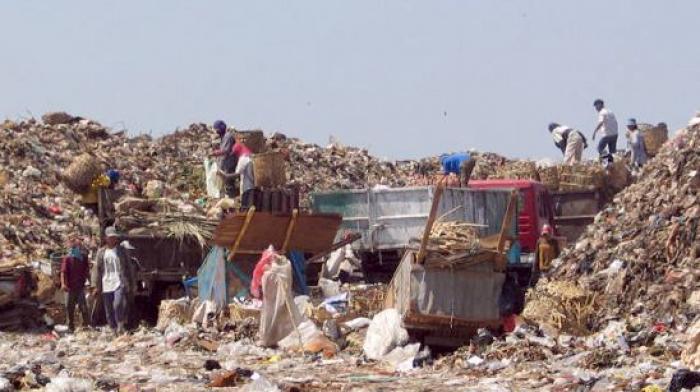Stop Littering Habit
Waste, rubbish, garbage, or trash are the unwanted materials remaining after the end of a process or item is discarded because it is not used anymore. Indonesian people are still careless about littering as they keep throwing the litter whenever they like.
Waste can be categorized into two types: non-organic or inorganic. This kind of waste come from non renewable natural resources such as minerals and petroleum, or from industrial processes that the degradability takes a long time, even hundreds years, including the waste that can not be degraded at all like Styrofoam. Some inorganic substances can not be degraded by nature, while others can only be degraded through a long process such as glass bottles, plastic, and cans.
The other is the organic waste consisting of plant and animal substances from the nature which degradability process requires relatively short time and takes place naturally such as vegetables, fruit peels, and leaves. The process is also easy and the waste will naturally be degraded in short time.
Indonesia is a country with a population of up to 225 million produces both organic and inorganic waste every day, almost the same amount for the two kind of waste. The main problem is public awareness and poor waste management. The amount of garbage produced each day in Indonesia reaches 11.330 tons per day and estimated to be 4.0788 million tons per year for the whole country.
How long does it take to decompose non organic waste naturally?
The types of waste materials and times to degrade are presented below:
- Plastic: 50 - 100 years
- Cigarette butts: 10 years
- Soft drinks cans (aluminum): 80 - 100 years
- Cardboard: 5 months
- Orange peels: 6 months
- Leather shoes: 25 - 40 years
- Piece of paper: 2 - 5 months
- Batteries: 100 years
- Styrofoam: non degradable
- Aluminum: 80 - 100 years
- Plastic (packages of detergent, shampoo, etc): 50 - 80 years
What will happen to the environment or our earth if each person does littering? There would be a garbage planet. Plastic can only be destroyed after 50 to 100 years and Styrofoam apparently can not be decomposed at all!
It is time to stop the habit of littering and become more "civilized" people. The following tips are to reduce the effect of littering:
- Throw the waste in the trash can, do not litter. Littering is the same with uncivilized habit.
- Separate each type of waste, such as organic and non organic waste
- Reduce, reuse, and recycle.
- Bring your own shopping bag, so you do not have to accept the given plastic bag. Most plastic bags for shopping end up as a waste.
- Choose a product which not need plastic bag
- Buy products that can be refilled, as this will reduce waste from packaging bottles
- While traveling, going to work or school, avoid buying bottled water in small bottles. It is better if you buy a bottle that can be permanently used repeatedly and you just need to refill it with the drinking water so you do not have to buy another bottle.
- If you're going sightseeing or recreation to nature, always bring your own bags. Many tourism places in Indonesia are not provided with trash bins. Bring your non-organic trash your home and never litter them in the nature.
- Remind other to stop littering.
- Provide enough trash bins at houses and offices
- Start with yourself, family, environment and.
- Start now!

